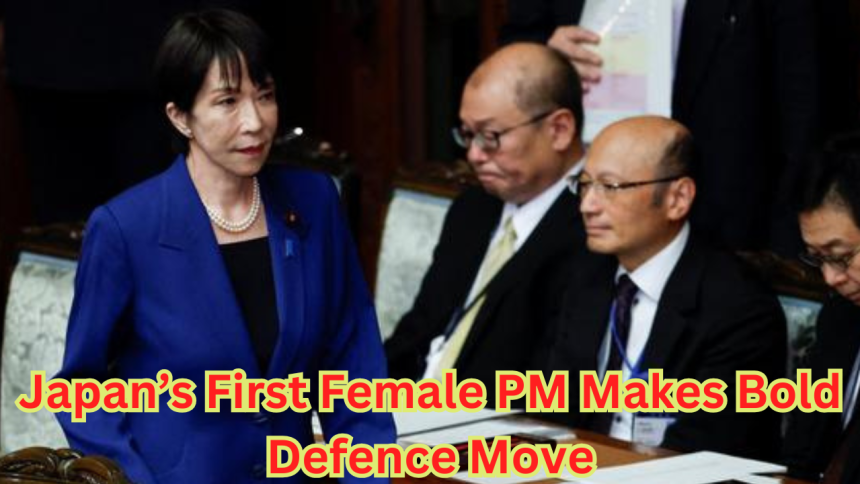By: Gitanjali Thorat | PR Desk
TOKYO — Japan entered a new political era as Sanae Takaichi became the nation’s first female Prime Minister on October 21, 2025, Known for her hard-line conservative views and admiration for former PM Shinzo Abe, Takaichi has promised both continuity and acceleration: faster defence growth, stronger alliances, and renewed economic stimulus.
Her appointment marks a symbolic milestone for Japan’s gender politics, though her cabinet — with only two women out of 19 ministers — underscores the limits of that progress.
Fast-Tracking Japan’s Defence Expansion
In her inaugural speech to parliament, Takaichi announced that Japan will raise its defence spending to 2 % of GDP by March 2026, two years earlier than previously planned. The decision reflects growing unease over China’s assertiveness, North Korea’s missile tests, and Russia’s regional aggression.
Japan’s defence budget, currently around ¥11 trillion, will fund advanced missile systems, cyber-defence, and maritime patrol capabilities. Takaichi argued that “a strong nation requires strong security,” aligning her policy directly with Abe’s vision of a more assertive Japan.
India at the Core of the Indo-Pacific Vision
Reaffirming Tokyo’s commitment to a Free and Open Indo-Pacific, Takaichi called India a “crucial partner” for regional stability. Her government plans to deepen cooperation through the Quad alliance — involving Japan, India, the U.S. and Australia — and expand defence, digital and maritime ties with New Delhi.
Officials confirmed the continuation of an existing workforce and technology exchange program bringing 500,000 Indian professionals to Japan over the next five years, a move aimed at offsetting Japan’s demographic decline and supporting its tech industries.
Takaichi’s ambitious agenda faces steep hurdles. Japan’s economy remains sluggish, inflation persistent, and public debt among the world’s highest. Domestically, she must balance rising defence costs with social spending and economic reform.
Regionally, her stronger military posture could draw criticism from Beijing and Seoul, where memories of Japan’s wartime past remain raw. Yet Takaichi insists her approach seeks deterrence, not provocation — a “peace through strength” doctrine fit for a volatile Asia.








